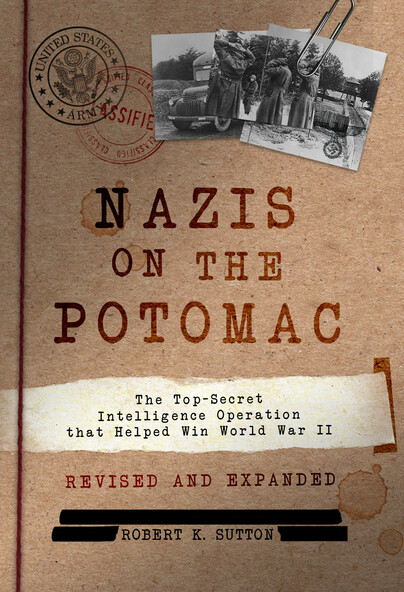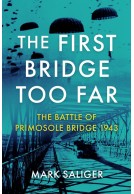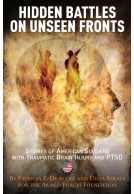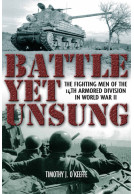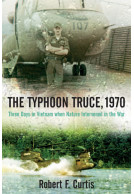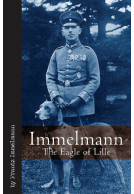Nazis on the Potomac (Paperback)
The Top-Secret Intelligence Operation that Helped Win World War II
Pages: 240
Illustrations: 30 photographs
ISBN: 9781636243771
Published: 15th October 2023
(click here for international delivery rates)
Order within the next 4 hours to get your order processed the next working day!
Need a currency converter? Check XE.com for live rates
Now a green, open space enjoyed by residents, Fort Hunt, Virginia – about 15 miles south of Washington, DC. – was the site of one of the highest-level, clandestine operations during World War II. Shortly after entering World War II, the U.S. military realised that it had to work on exploiting any advantages it might gain on the Axis Powers. One part of these endeavours was to establish a secret facility not too close, but also not too far from the Pentagon, which would interrogate and eavesdrop on the highest-level Nazi prisoners and also translate and analyse captured German war documents. The complex established at Fort Hunt was known by the code name: PO Box 1142.
The American servicemen who interrogated German prisoners or translated captured German documents were young, bright, hardworking, and absolutely dedicated to their work. Many of them were Jews, who had escaped Nazi Germany as children – some had come to America with their parents, others had escaped alone, but their experiences and those they had been forced to leave behind meant they all had personal motivation to do whatever they could to defeat Nazi Germany. They were perfect for the difficult and complex job at hand. They never used corporal punishment in interrogations of German soldiers but developed and deployed dozens of tricks to gain information.
The Allies won the war against Hitler for a host of reasons, discussed in hundreds of volumes. This is the first book to describe the intelligence operations at PO Box 1142 and their part in that success. It will never be known how many American lives were spared, or whether the war ended sooner with the programs at Fort Hunt, but they doubtless did make a difference. Moreover these programs gave the young Jewish men stationed there the chance to combat the evil that had befallen their families.
If you have read the excellent books by Dr Helen Fry on Britain's intelligence gathering & the bugging of German POWs during the second world war, then this is the story of how the Americans created an almost identical system, for both Japanese & German prisoners.
History Book Chat
Between 1943-46 almost 3500 Germans lived only twelve miles from the Pentagon at a POW camp called Fort Hunt.
Elsewhere in the US, a once luxurious Californian hotel where stars such as Clark Gable & Charlie Chaplin once frequented, Japanese POWs now occupied those same rooms. Unbeknown to them was the fact that all their rooms were bugged by hidden microphones in the previously lowered ceilings.
Both of these facilities were based on British sites like Trent Park which had proved to be very successful.
Like Britain, the US had also taken in Jewish refugees from Germany before the war. Some of these men were trained in how to question & interrogate German POWs, others would translate what the many microphones recorded.
In the case of the Japanese prisoners, the US used Americans of Japanese ancestry to follow the same processes.
One particular story of great interest was that of the German U-boat U-234. Near the war's end this specially adapted submarine left Germany heading for Japan. Onboard along with the crew was a radar & infra-red expert & a mass of technical drawings on new & advanced German projects. They eventually surrendered enroute to Japan after radio messages informed them that the Germans had surrendered. What was found amongst those documents & was learned from questioning those onboard, would prove to be of great value to the Americans.
Readers will also learn of the pre-war German actor who volunteered to play out some new roles as a stool pidgeon.
Proving amongst the many prisoners, there would be those who were hardened Nazis & who gave nothing away. Whilst many said they never wanted to fight & so would assist & provide information quite freely.
In the German camps of Europe, Allied prisoners also had secret departments assisting them from Fort Hunt. One known as 'the warehouse' devised methods to conceal items in parcels sent to the prisoners. From baseballs to board games, a variety of items could be hidden in ingenious ways, including parts to build radios.
A secret code system was also invented at Fort Hunt. With the assistance of their families, information was hidden in letters to & from Allied POW's. These managed to pass the attentions of the German's censors.
As the war drew to an end, some of those former German refugees would be needed in Europe as translators, staying on beyond 1945 for the Nuremberg trials. Others stayed in the US & kept a watchful eye on those German scientists recruited into the arms & space races.
As readers will learn, despite endless tests & interrogations, not everyone, was as they seemed.
The stories of intelligence gathering & spying on prisoners, is a fascinating subject.
I may have revealed quite a few secrets here, but this excellent book is such a valued addition to the subject, that it offers so many more for the reader to enjoy.







